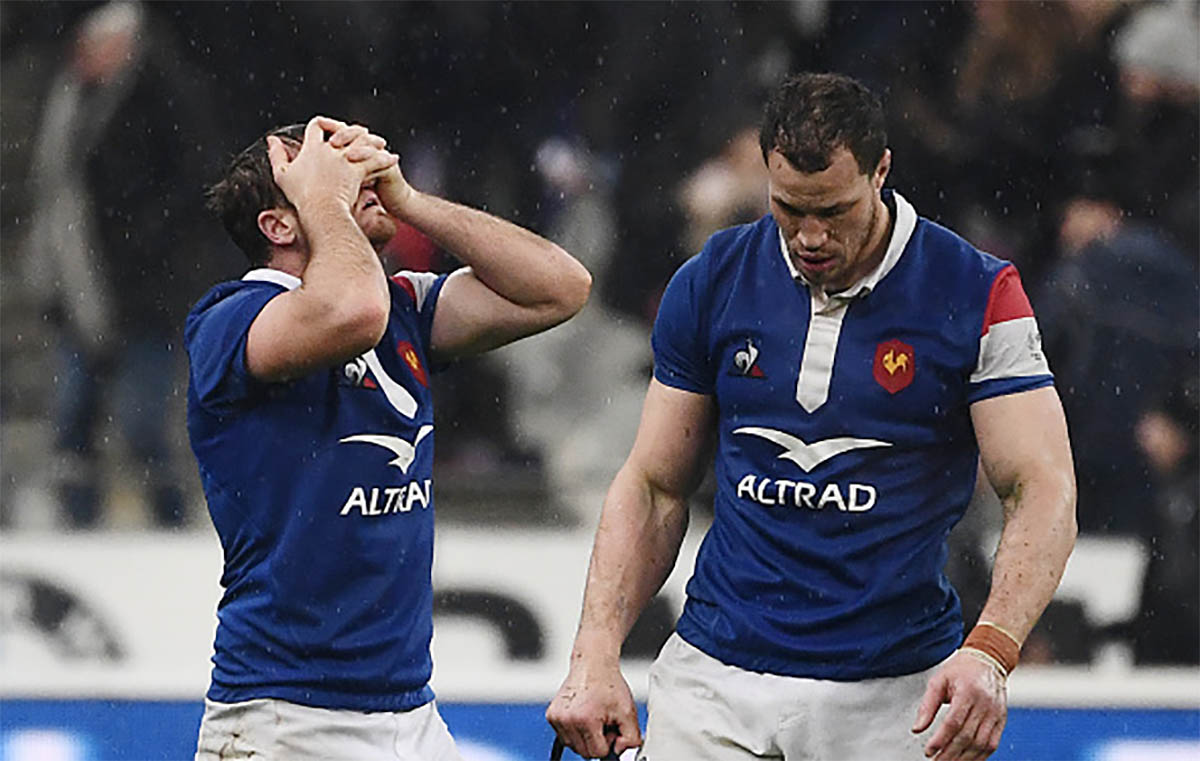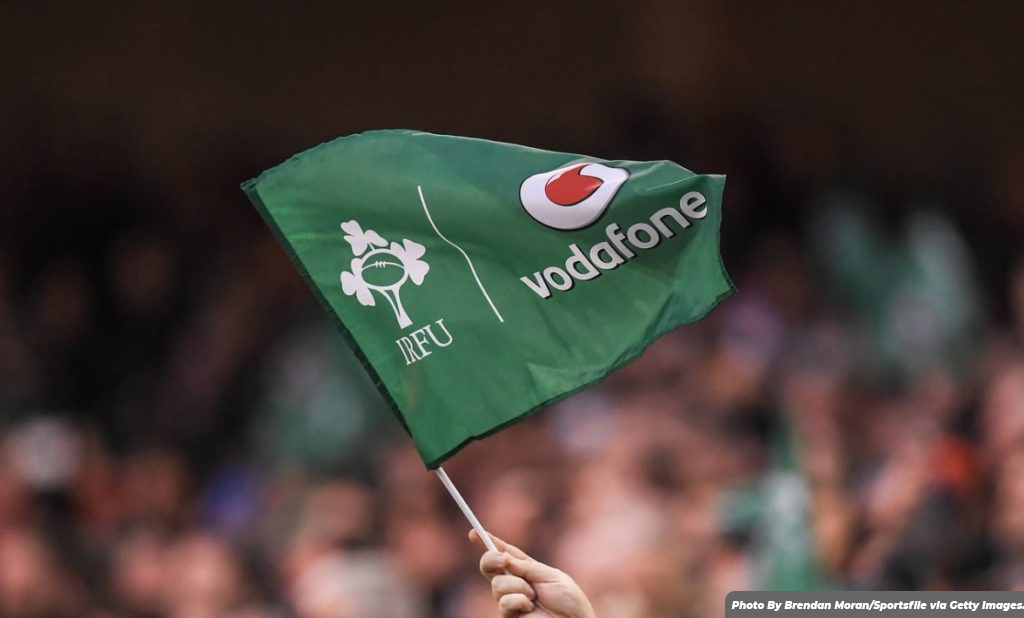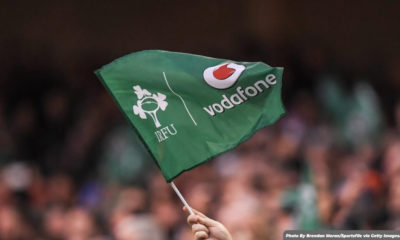6 Nations
France – The Blind Leading The Blind

“We can do this. But do we work on it? No.” The telling words of Morgan Parra after France’s humiliation at Twickenham. The veteran halfback questioned the preparations of the French team after their disastrous performance against England. “I think that we are capable of doing what the English do, but are we working on this during training? I think we don’t work on it enough, even not at all”.
Embed from Getty ImagesParra has not made the 23 for this weekend’s game against Scotland, for what Jacques Brunel calls “sporting reasons”, so read into that what you will. Camille Lopez is in the same boat; after the game, he acknowledged that the French players were accountable, but he said I think it is not just us, and we are not alone in this disaster”. After watching the Wales game, you would’ve thought that French rugby couldn’t get much more disorganised, but when you hear stories of poor Romain Ntamack being sent on to the pitch not even knowing what position he was to play, there really must be something rotten in the state of France.
Selection policy is something French coaches generally have difficulty with. Whether its the pressure or expectation of the job, who knows, but most of the time its absolutely mystifying. This weekend’s backline is the most sensible one to be seen on a French teamsheet in quite a while, compared to last week’s rabble of four centres and a wing as the outside backs. Thomas Ramos is wearing the 15 jersey for the weekend. Ramos made his debut in Twickenham, limiting the damage in the second half to fourteen points, compared to 30 points in the first half.
France at home are a different beast to the shower of chancers that turned up to play England game. Last year it took a Hail Mary moment from King Johnny for Ireland to get over the line in Paris, and they came absolutely flying out of the blocks against Wales. Two early tries from Yoann Huget and Louis Picamoles and a peachy drop goal from Camille Lopez had Wales rattled. Wesley Fofana was a brute in midfield, Arthur Iturria and Louis Picamoles were making gains with ease up front. It looked for all the world like France were back.
The second half was a different story. Wales began defending and two gift-wrapped tries for George North later, France were behind. It is no coincidence that France really began to fall apart after captain Guilhelm Guirado went off. A rather alarming interview with Sebastian Vahaamahina revealed that late in the game there was such confusion in the French ranks that Vahaamahina didn’t even know he was captain.
France didn’t close out the Wales game when it was in the balance because the leaders among them didn’t cool the heads around, nobody was there to say “Boys! Take it easy! Keep it simple!” (or the French equivalent). Instead you had a second row throw a 20m miss pass that ended up being intercepted for Wales’ decisive try. The same thing happened in Twickenham. The lack of consistency in French selections mean that there is no real leadership group in the French squad. Guilhelm Guirado is a fantastic captain, that any team would be delighted to have, but there is only so much he can do, and playing in the front row as he does, he is rarely going to finish a game.
Embed from Getty ImagesCompare this to Ireland; Rory Best is captain. He leaves at the 50 minute mark, you still have Munster captain Peter O’Mahony, Leinster captain Johnny Sexton, and you have CJ Stander who has loads of experience captaining Munster. Sean O’Brien is not a captain, but is apparently one of the most influential voices in the Irish squad. This is the benefit of consistent selections. A group of leaders emerges in the squad, but if you pick a different pack every week, this just won’t happen.
For many years France have not had a non-French coach, and this is their downfall. They need a fresh voice, someone from outside the system. Guy Noves was good; his results were not, but there was signs he was building something, blooding players, trying to build combinations. You would be fascinated to see what someone like Vern Cotter or Joe Schmidt could do with the talent of the French backs, but given the FFR’s track record this is highly unlikely.
It is clear there is something rotten in the French team. The players can see it, the fans and pundits can see it, but whether the coaching staff will figure it out who knows. Scotland will arrive at the Stade De France this weekend with an injury plagued squad; as to what kind of France team will face them, nobody knows.
Embed from Getty Images6 Nations
Munster Rugby Announce Contract Deals For Murray, Daly & Gleeson

Munster Rugby and the IRFU are pleased to confirm contract extensions for Conor Murray and Jack Daly with Brian Gleeson to be promoted from the Academy to the senior squad next season.
Murray and Daly have signed one-year extensions with Gleeson moving up to the senior squad on a two-year deal.
Gleeson is one of five Academy players moving up to the senior squad next year with Tony Butler, Ethan Coughlan, Mark Donnelly and Edwin Edogbo also signing two-year deals.
Conor Murray is one of the most decorated scrum-halfs in world rugby with 116 Ireland caps and three British & Irish Lions tours to his name.
A former St Munchin’s College student, the Garryowen man won his fifth 6 Nations title with Ireland last month and earned his second league title with Munster last season.
The 34-year-old has made 185 Munster appearances and scored 34 tries for the province to date and was named on World Rugby’s Team of the Decade in 2019.
25-year-old flanker Jack Daly came up through the ranks at Castleisland RFC and made his Munster debut against Zebre in 2020.
Daly joined the Academy in 2018, moved up to the senior squad in 2021 and plays his AIL rugby with Garryowen. A former Ireland U20 international, he made his Champions Cup debut against Toulouse in the quarter-final at the Aviva Stadium in 2022.

Try-scoring number 8 Brian Gleeson leads the charge for the Ireland Under-20s against France ©INPHO/Evan Treacy
20-year-old Gleeson moves up to the senior squad after just one year in the Academy that has seen him score one try in nine senior appearances.
Currently out of action with an ankle injury, he had already made three Champions Cup appearances before turning 20.
The powerful back-row forward was a Grand Slam winner with the Ireland U20s last year. plays his AIL rugby with Garryowen and came up through the ranks at Thurles RFC and Rockwell College.
Images & Content from Irish Rugby & Images © Inpho Photography
6 Nations
Farrell Names Ireland Match Day Squad To Face Scotland In Dublin

Head Coach Andy Farrell has named his Ireland Match Day Squad for Saturday’s Guinness Men’s Six Nations clash against Scotland at Aviva Stadium (Kick-off 4.45pm).
Ireland – currently sitting top of the Six Nations table heading into Super Saturday – can clinch back-to-back Championship titles with victory over Scotland in Dublin.
Farrell has named an unchanged starting XV for the Round 5 clash, as Hugo Keenan, Calvin Nash and James Lowe continue in the Ireland back three. Robbie Henshaw and Bundee Aki are once again selected in midfield, with Jack Crowley and Jamison Gibson-Park the starting half-backs.
Andrew Porter, Dan Sheehan and Tadhg Furlong pack down in the front row, with Joe McCarthy partnering Tadhg Beirne – who is set to win his 50th Test cap for Ireland – in the engine room.
Captain Peter O’Mahony is at blindside flanker, Josh van der Flier is at openside and Caelan Doris completes the starting XV at number eight.
The Ireland Coaching Team have opted for a 5-3 split on the bench, with Rónan Kelleher, Cian Healy, Finlay Bealham, Ryan Baird and Jack Conan providing the reinforcements up front, and Conor Murray, Harry Byrne and the fit-again Garry Ringrose the backline options.

Saturday’s match is live on Virgin Media One and ITV, with live radio coverage available on RTE Radio 1.
Ireland Team & Replacements (v Scotland, Guinness Men’s Six Nations, Saturday, March 16, 4.45pm)
15. Hugo Keenan (UCD/Leinster)(39)
14. Calvin Nash (Young Munster/Munster)(5)
13. Robbie Henshaw (Buccaneers/Leinster)(71)
12. Bundee Aki (Galwegians/Connacht)(55)
11. James Lowe (Leinster)(30)
10. Jack Crowley (Cork Constitution/Munster)(13)
9. Jamison Gibson-Park (Leinster)(34)
1. Andrew Porter (UCD/Leinster)(63)
2. Dan Sheehan (Lansdowne/Leinster)(25)
3. Tadhg Furlong (Clontarf/Leinster)(75)
4. Joe McCarthy (Dublin University/Leinster)(9)
5. Tadhg Beirne (Lansdowne/Munster)(49)
6. Peter O’Mahony (Cork Constitution/Munster)(captain)(104)
7. Josh van der Flier (UCD/Leinster)(61)
8. Caelan Doris (St Mary’s College/Leinster)(40)
Replacements:
16. Rónan Kelleher (Lansdowne/Leinster)(30)
17. Cian Healy (Clontarf/Leinster)(128)
18. Finlay Bealham (Buccaneers/Connacht)(39)
19. Ryan Baird (Dublin University/Leinster)(19)
20. Jack Conan (Old Belvedere/Leinster)(45)
21. Conor Murray (Garryowen/Munster)(115)
22. Harry Byrne (UCD/Leinster)(3)
23. Garry Ringrose (UCD/Leinster)(57).
Images & Content from Irish Rugby & Images © Inpho Photography
6 Nations
Farrell Names Ireland Team To Face England At Twickenham

Head Coach Andy Farrell has named his Ireland Match Day Squad for Saturday’s Guinness Men’s Six Nations clash against England at Twickenham (Kick-off 4.45pm).
Peter O’Mahony captains Ireland for the Round 4 visit to London, with Hugo Keenan returning to the starting XV after recovering from injury.
Keenan joins Calvin Nash and James Lowe in the Ireland back three, with Bundee Aki and Robbie Henshaw continuing their midfield partnership.
Jack Crowley and Jamison Gibson-Park are retained as the half-back pairing.
In the pack, Andrew Porter, Dan Sheehan and Tadhg Furlong are in the front row, with Joe McCarthy and Tadhg Beirne named in the engine room. Captain O’Mahony is at blindside flanker, Josh van der Flier is at openside and Caelan Doris completes the starting XV at number eight.
The Ireland Coaching Team have selected a 6-2 split on the bench, as Ronan Kelleher, Cian Healy, Finlay Bealham, Iain Henderson, Ryan Baird and Jack Conan provide the reinforcements in the pack.
Backs Conor Murray and Ciaran Frawley complete Ireland’s Match Day 23 to face England.
Saturday’s match is live on RTÉ2 and ITV.
Ireland:
15. Hugo Keenan (UCD/Leinster)(38)
14. Calvin Nash (Young Munster/Munster)(4)
13. Robbie Henshaw (Buccaneers/Leinster)(70)
12. Bundee Aki (Galwegians/Connacht)(54)
11. James Lowe (Leinster)(29)
10. Jack Crowley (Cork Constitution/Munster)(12)
9. Jamison Gibson-Park (Leinster)(33)
1. Andrew Porter (UCD/Leinster)(62)
2. Dan Sheehan (Lansdowne/Leinster)(24)
3. Tadhg Furlong (Clontarf/Leinster)(74)
4. Joe McCarthy (Dublin University/Leinster)(8)
5. Tadhg Beirne (Lansdowne/Munster)(48)
6. Peter O’Mahony (Cork Constitution/Munster)(captain)(103)
7. Josh van der Flier (UCD/Leinster)(60)
8. Caelan Doris (St Mary’s College/Leinster)(39)
Replacements:
16. Ronan Kelleher (Lansdowne/Leinster)(29)
17. Cian Healy (Clontarf/Leinster)(127)
18. Finlay Bealham (Buccaneers/Connacht)(38)
19. Iain Henderson (Academy/Ulster)(80)
20. Ryan Baird (Dublin University/Leinster)(18)
21. Jack Conan (Old Belvedere/Leinster)(44)
22. Conor Murray (Garryowen/Munster)(114)
23. Ciaran Frawley (UCD/Leinster)(3)
Images & Content from Irish Rugby & Images © Inpho Photography













